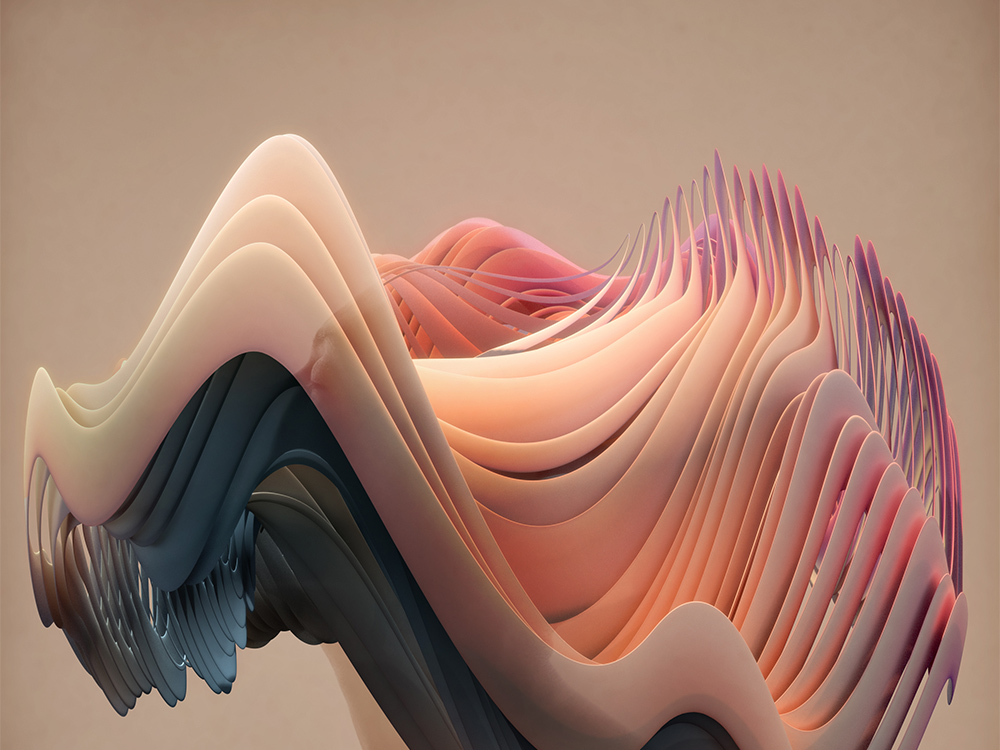
Our Instrument
The journey behind the Kia instrument.
To build the Kia instrument we recorded the sounds of movement in nature all over the world.
Here you can explore the places where those sounds were captured.
Science
The science behind the Kia instrument.
The sounds of movement in nature produce what’s known as pink noise. This increases the alpha waves in the brain, inducing the flow state of consciousness, the state in which the brain is at its most creative. These natural sounds were recorded all over the world and used to develop a one-of-a-kind instrument. To induce the flow state further, every composition should be arranged following these 4 neuroscientific parameters:


"We found that people were more creative when they had listened to the songs... you could see increased alpha and theta power, a coherence of brainwaves seen and increased connectivity, particularly connecting the occipital and frontal parts of the brain, where our emotional control center is situated, and the areas connected to increased creativity and flow states."
Katherine Lewis, Creative Scientist and Futurist
Feature
How to use the Kia instrument
Feature 1.
Nature Samples

Recorded all around the world, the sounds of movement found in nature at your fingertips. Simply select one of the 8 filters sounds from wind, birds, beach, geyser, forest, water, thunder, and night to get started.
Feature 2.
Mixer
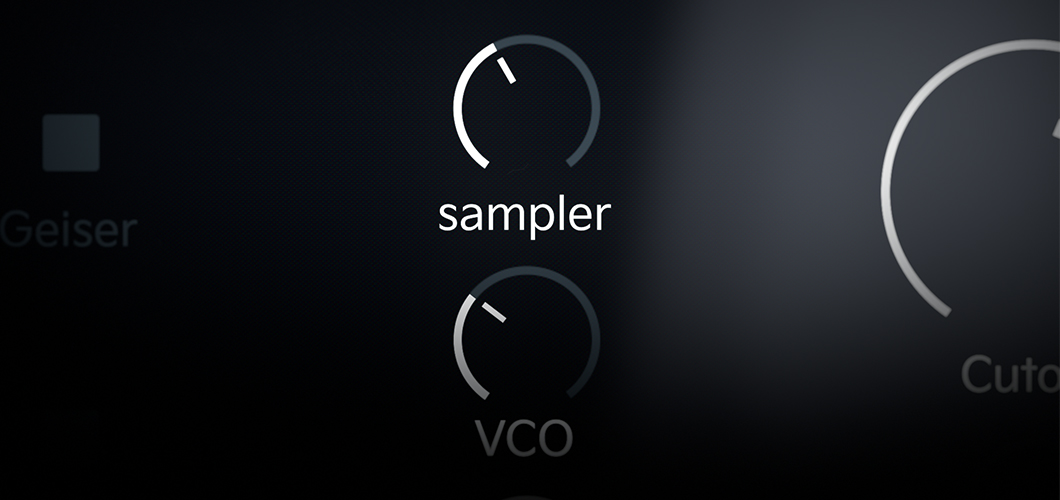
Shape your sound and add individual flair to your track using the Mixer section. The Kia instrument offers 4 different mixing dials that give you precise control over the volume of each channel. When the dial is set all the way to the left it means there’s no sound being applied to the music, when it’s set to maximum, we hear the chosen filter at its loudest.
- Sampler: Adjusts the volume of the sampler chosen from section 1.
- VCO: Sets the volume of the key notes played via the instrument’s keyboard.
- Noise: Modifies the volume of the nature samples by following the rhythm of the key notes.
- Reverb: Adds an echo effect to the sound you are producing
Feature 3.
Filter
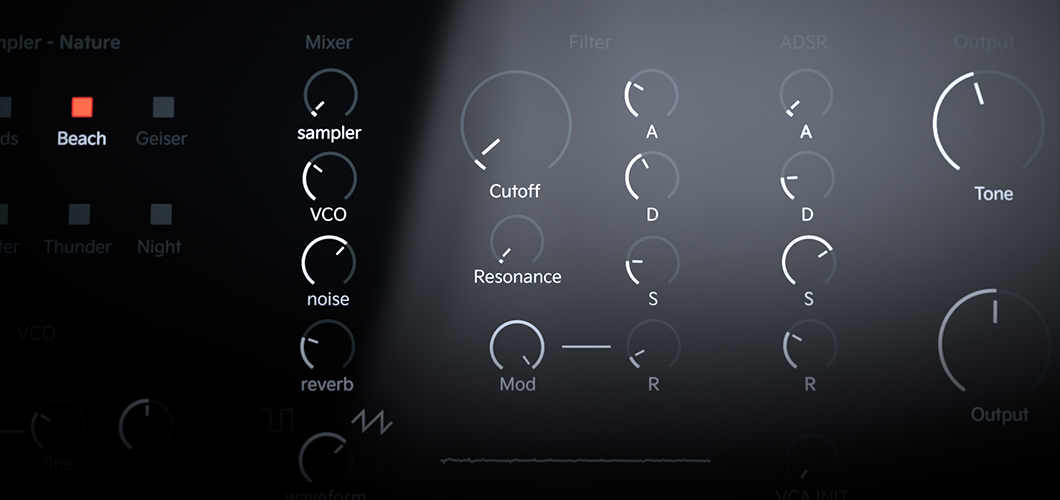
Effects are a great way to add texture to your track and they are also great for smoothing out your transitions. This 7-channel section offers a multitude of functions and makes it easy for you to refine your songs. Here, you can adjust the sounds, filter their frequencies, or add resonance with a simple gesture. Just push any button and turn it as fast or as slow as you want to build tension. You can even modify the time of attack, sustain, decay and release of your chosen filter.
Feature 4.
ADSR
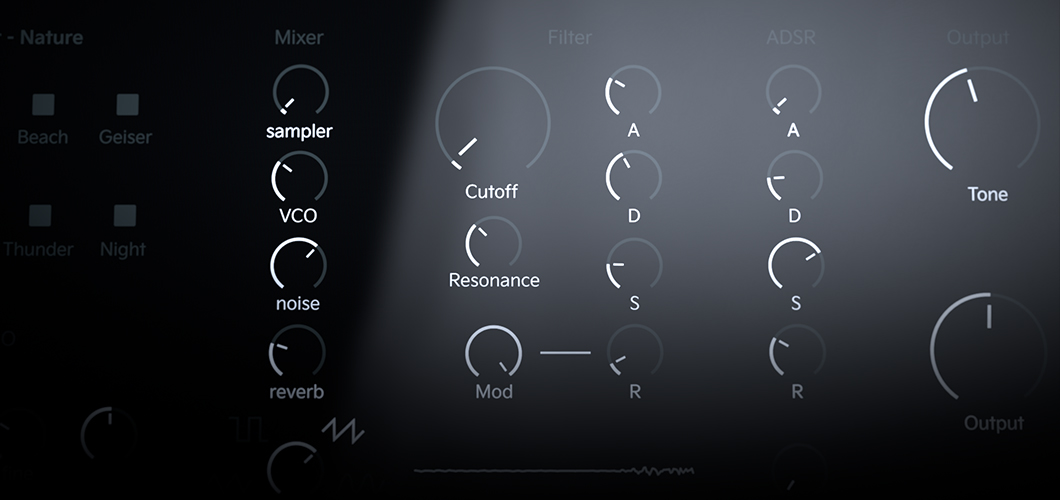
Spice up your creative process by manipulating the time of each note being played to your liking. ADSR is the Attack, Decay, Sustain and Release of a sound. Together, they make up the ADSR envelope, which determines how a sound unfolds over time.
- Attack: When you first press a key, the Attack refers to the time it takes for your sound to go from silent to the loudest level.
- Decay: The Decay time controls how long it takes for your sound to go from the initial peak of your attack to the sustain level.
- Sustain: This refers to the level during the main sequence of your sound. It’s the level that your sound maintains when you hold a note.
- Release: This function controls how long it takes your sound to return to silence after the key is released. A longer release time means a longer fade out.
Feature 5.
VCO
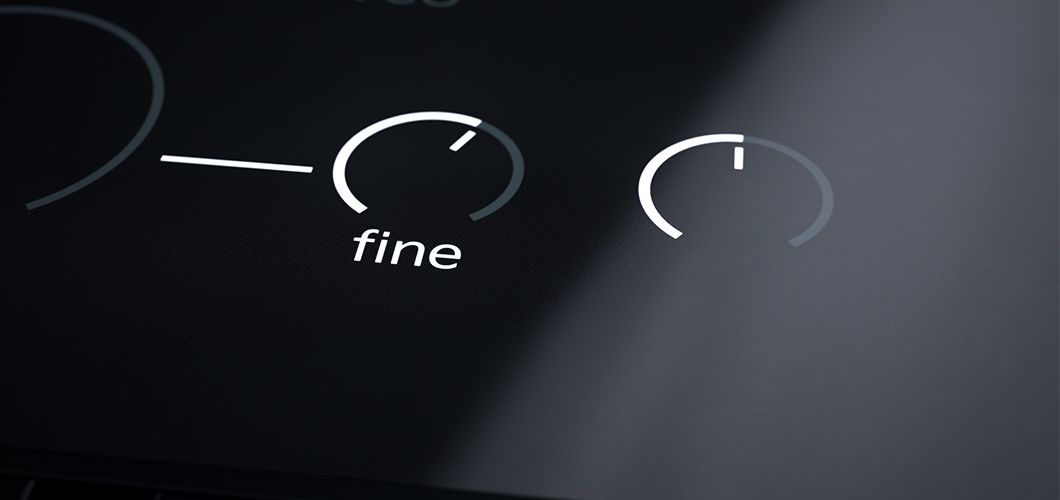
Fine-tune the pitch and mould the sound of the whole instrument by rotating the VCO dial from left to right, with 1 being the standard.
Feature 6.
Waveforms
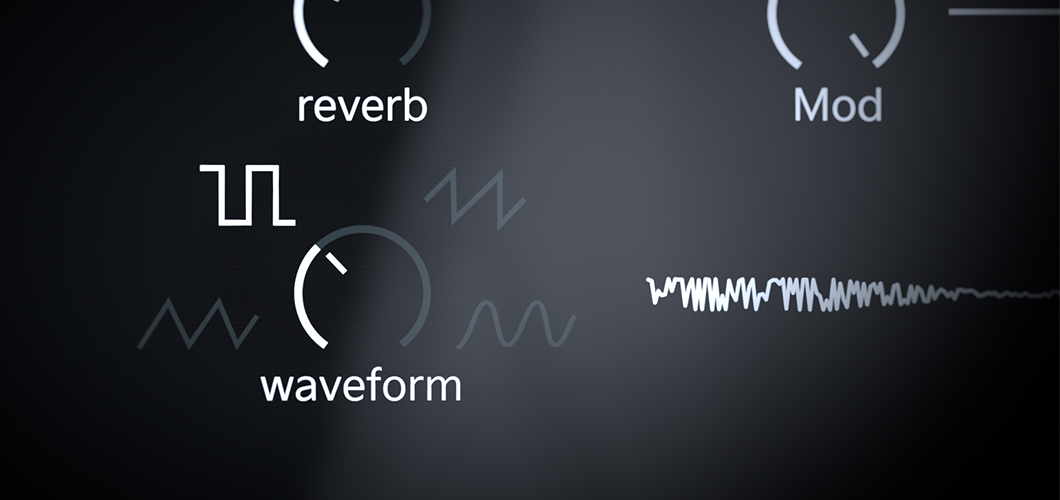
There are 4 different classic synthesizer waveforms that you can choose from: Triangle, Square, Saw and Sine. Navigate through each one of them by gradually turning the dial to 7 o’clock, 10 o’clock, 2 o’clock and 5 o’clock.
Feature 7.
Output
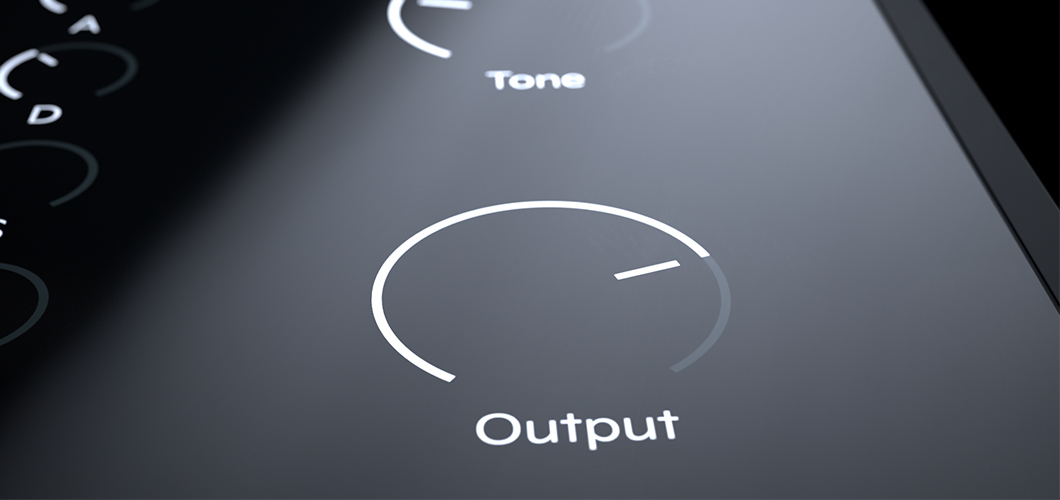
Set the final tone of your track using the ‘Output’ section. Ranging from low to high, making it brighter or darker, “Tone” will adjust the tone of the whole system and the “Output” dial will control the overall volume.
Feature 8.
Keyboard
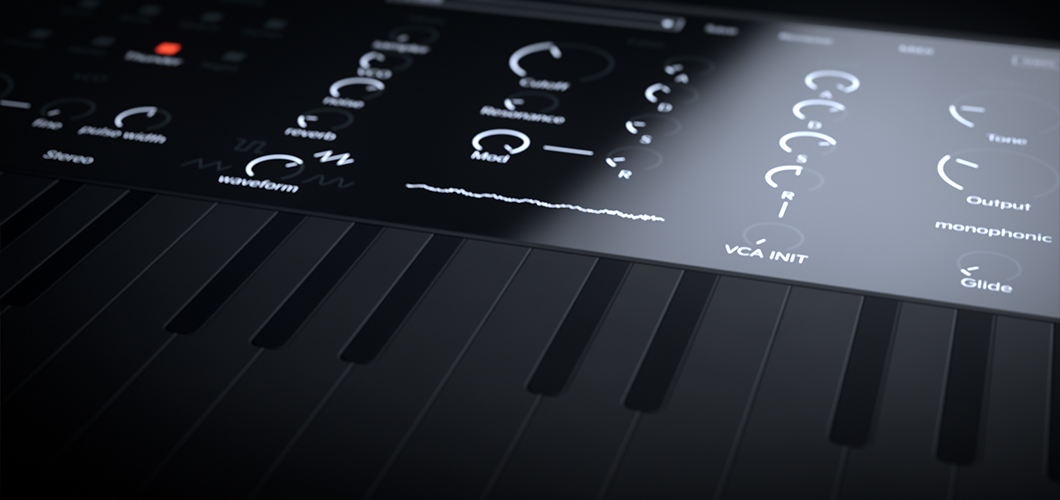
The Kia instrument features a touchpad keyboard so you can play as you go. You can create endless patterns, save your loops, play them back immediately and modulate the sounds with the dials. The key buttons light up when played, which offers a quick visual orientation.
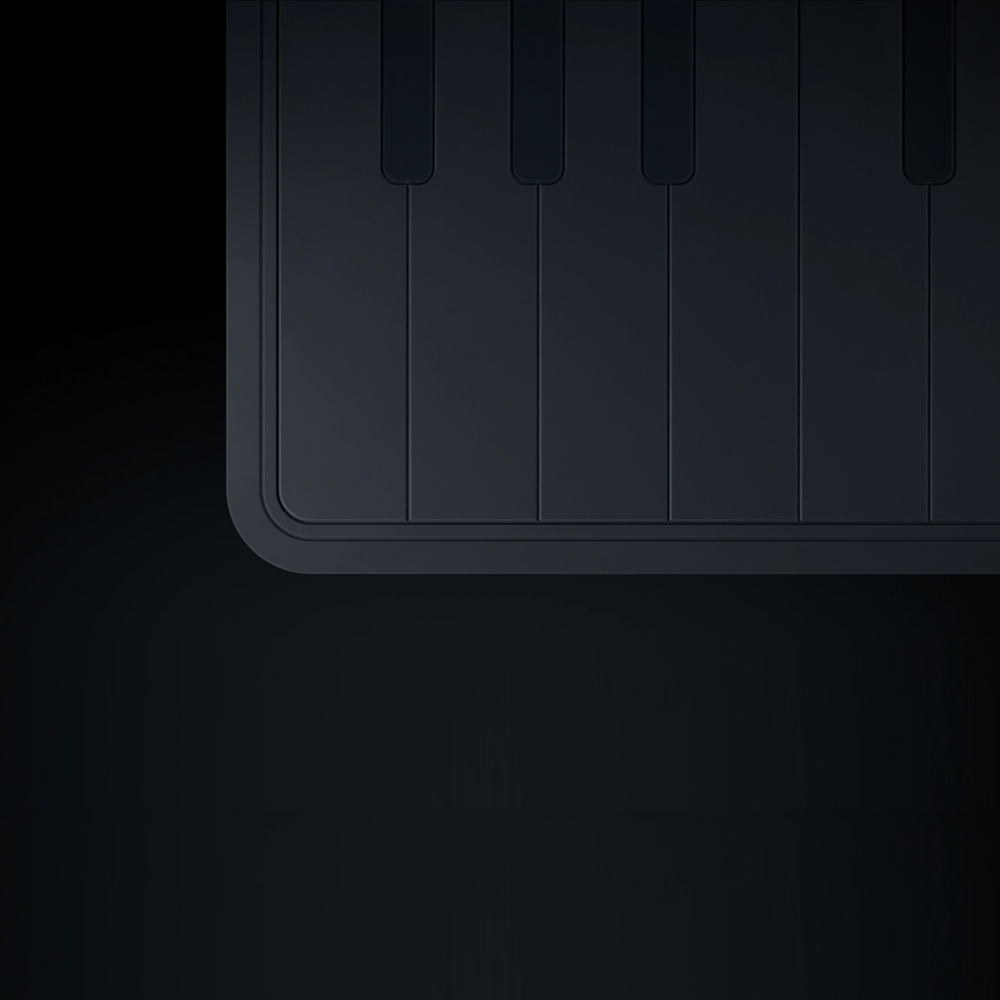
Download the Kia instrument.
Download Kia's new instrument.
and start making music.
Now that you know all about the instrument it’s time to make some music.
Download the instrument here so you can create songs that truly inspire.
Remember to use the 4 neuroscientific parameters mentioned in ‘The science behind the Kia instrument.’
section to help make your songs even more inspiring.
* Available on PC









